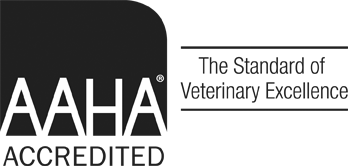There is no substitute for a hands-on examination with a qualified veterinarian that you trust.
In order to help your pet live a longer, healthier life, yearly check-ups for your pet along with regular vaccinations, dental exams, and annual screenings are highly recommended.
Our Pet Services
We are pleased to offer the following services at Burch Creek Animal Hospital:
- Pet wellness and vaccination programs to prevent illnesses
- Animal medical services for diagnosing and treating health conditions
- Pet surgery including spay and neuter
- Pet dental cleanings and treatment to avoid serious dental diseases
- And many more
If you’re ready to see our expert veterinary team call us today at 801-479-4410 or make an appointment now.
All Services
Examinations & Wellness Care
Surgery
Our state-of-the-art surgical suite allows us to perform many types of surgeries. Gas anesthesia, heart and lung monitors, and IV fluids are used during all surgeries. We offer optional laser surgery for many procedures, which reduces pain and inflammation for your pet. We believe in total pain management before, during, and after surgery so that your pet is comfortable at all times.
Below are documents with some more information;
Preparing Your Pet For Sedation or Surgery Drop Off
“Happy Packs” for Surgery (canine)
“Happy Packs” for Surgery (feline)
Laser Therapy
Laser therapy is used to treat a variety of conditions such as arthritis, post-surgery pain, wounds, and infection in a noninvasive, pain-free way. Laser therapy is a non-drug way to stimulate the body to heal from within. Improvement is usually noticeable within hours depending on your pet’s response and condition.
Radiology
X-rays can be a very useful tool in the diagnostic work-up for a sick or painful pet. All digital images are stored electronically, making transferring medical records as efficiently as possible.
Ultrasound
Ultrasound can be an extremely important diagnostic tool. Sometimes a cardiac or abdominal ultrasound can give us important information to pinpoint your pet’s illness and identify the appropriate course of treatment. If your pet needs an ultrasound, we have an ultrasound specialist that comes to our clinic as needed.
We offer an in-house point of care ultrasound to provide immediate information about your pet in the urgent or critical setting and to assist in the collection of laboratory samples such as urine and chest or abdominal fluid.
Behavior/Dietary Counseling
Anxiety Resources:
Unfortunately, our pets can have anxiety, fear, stress, and reactivity for many reasons. It is estimated that over 23 million dogs are affected by fear and anxiety disorders in the US. Luckily there are high quality supplements available that are backed by scientific research that supports improvement in these symptoms with daily use.
Some pets’ symptoms are more severe and may need behavior modification therapy with a professional trained in behavior as well as prescription medication to address their anxiety symptoms. We can prescribe medication for these patients and we can refer you to trusted sources for behavior modification therapy. There is no simple pill that will cure behavior problems- medication can improve the symptoms and the success of behavior modification therapy – but the most important part of treating a pet with fear, anxiety or stress is working with a professional trained in positive based behavior modification.
One important thing to consider *before* things like behavior modification, supplements or medications is – are my pet’s emotional needs being met? This means that in addition to providing good nutrition, veterinary care, and safe and comfortable housing or shelter, we also need to make sure we are being attentive to their mental health and emotional needs and safety. Species appropriate environmental enrichment includes giving them safe opportunities in ways that are also acceptable to us to do normal dog or cat behaviors such as sniffing, digging, foraging, playing, barking, scratching, and hunting prey (real or stuffed!). Providing appropriate social interactions, the right amount of exercise (too much can be as unproductive as too little), clear and positive-based reinforcement training, a quiet place to rest and predictable routines and interactions is HUGE for our pets’ mental health.
Many of us take our dogs for walks, but we may have the notion that a walk should always be fast paced exercise. Our dogs benefit mentally just as much or more when we SLOW down and let our dogs sniff all the things they want to sniff. Food puzzles, food dispensing toys, snuffle mats and hiding treats or toys around the house or yard allow our dogs to use their noses and their brains and exhibit normal foraging behavior. Sniff exercises are also very calming for dogs.
Training classes are not just for puppies! Taking a positive reward based class with your dog strengthens your bond, improves your communication with your dog, and is fun for both of you. Your dog may like some of our local classes such as obedience, getting their Canine Good Citizen title, a tricks class, scentwork, agility, barnhut, flyball, rally, Fast Cat or Dock Diving.
What about cats!!??
https://indoorpet.osu.edu/cats
https://catfriendly.com/
https://www.fearfreehappyhomes.com/kit/cats-101/
These websites provide a wealth of information about our cat’s environmental needs
including scratching options, litter box choices, perches and resting areas, toys,
identifying your cat’s prey preferences, as well as understanding cat behavior and feline
life stressors, anxiety, boredom and intercat conflict.
Signs of fear, anxiety and stress include:
- Dogs: hiding, escaping, excessive barking, trembling, panting, pacing, hypersalivation/drooling, destructive behaviors, elimination in the house (urine/feces), changes in appetite
- Cats: changes in appetite, overgrooming, hiding, panting, urine spraying or urinating/defecating outside the litterbox, inter-cat aggression (this can be subtle- even if your cats don’t actively fight, there can be bullying behavior occurring that is very stressful)
Just like in humans, some pets do better on some medications or supplements than others- it is a bit of trial and error to see what works best for each individual pet. Sometimes we need to layer multiple supplements +/- medications (along with behavior modification) to reach the best outcome.
Pheromone Therapy:
A pheromone is a chemical substance produced and released into the environment by an animal that affects the behavior or physiology of others of its species. Because they are species specific, we can’t detect dog or cat pheromones; dogs only detect dog pheromones, and cats only detect cat pheromones. You can use both in your house safely and effectively if you need them for both your cat(s) and dog(s).
Using synthetic versions of the calming and happy/positive pheromones that cats and dogs produce can be very effective to reduce fear, anxiety and stress. We use these products in our clinic: we have diffusers in exam rooms and pet wards and we spray ourselves, the blankets, bedding and towels that we use to handle and house your pets when they are in the clinic to reduce their fear, anxiety and stress. You may begin to see improvement within days of starting pheromone therapy but it takes 30 days to reach full effect.
Dog:
Thunderease (formerly called Adaptil): this is available as a pheromone collar,
diffuser and spray:
Cat:
Feliway: feline pheromone diffusers and spray https://us.feliway.com/
Thundershirt: https://thundershirt.com/collections/all-thundershirts
A ThunderShirt may help some pets in stressful situations like thunderstorms, fireworks,
separation anxiety, travel and vet visits. The ThunderShirt’s patented design applies
constant, gentle pressure on the torso that helps to calm many pets.
Oral Supplements:
Solliquin: https://www.solliquin.com/
- This contains 4 ingredients that relax and control stress and anxiety:
- L-theanine: An amino acid found naturally in green tea. It directly stimulates the production of alpha brain waves, which create a state of deep relaxation, wakefulness, and mental awareness.
- Magnolia / Phellodendron: The combination of Magnolia and Phellodendron extracts appears to be synergistic, which means that the combination of both controls stress and anxiety more effectively than either compound used alone.
- Whey Protein Concentrate: Contains NMXSLQ05®, a trademarked high quality protein source which supplements ten essential amino acids including the precursors of glutathione and serotonin.
- It takes 30-45 days to reach full effect.
Zylkene: https://www.vetoquinolusa.com/content/zylkene
- This contains bovine-sourced hydrolyzed milk protein, an ingredient that has calming properties.
- It can be used short-term (prior to a known stressful event such as boarding or travel), or long-term.
- For short-term use: Use Zylkene for 1–2 days before a planned event or change in environment. Some animals may need earlier administration (5–7 days).
Composure Pro: https://www.vetriproline.com/composure-pro
- This contains Colostrum Calming Complex, a patented mixture of bioactive proteins proven to have calming or anxiolytic properties, L-Theanine for stress reduction and relaxation, and Tryptophan, an essential amino acid known for its role in the production of nervous system messengers, especially those related to relaxation, restfulness, and sleep.
Purina Calming Care Probiotic:
https://www.proplanvetdirect.com/shop-dog/calming-care-dog
https://www.proplanvetdirect.com/shop-cat-1/calming-care
- This is a probiotic that you sprinkle onto your pet’s food once daily, it contains a strain of beneficial bacteria shown to help pets maintain calm behavior.
- It takes 6 weeks to reach full effect.
Assisi Loop: https://assisianimalhealth.com/calmer-canine/
Calmer Canine is a highly innovative, gentle, effective, safe and drug-free treatment system for canine separation anxiety. The Calmer Canine device delivers targeted pulsed electromagnetic field (tPEMF) signals to the area of the brain responsible for causing the symptoms of anxiety, effectively returning the anxious brain to a more balanced emotional state – with long-lasting effects. It may help with anxiety and behaviors in addition to separation anxiety.
Music Therapy: https://icalmpet.com/
- certain music has been proven to be calming for pets.
Food:
Royal Canin and Hills make prescription foods for smaller dogs and cats that have calming supplements in them:
Dogs:
Hills i/d stress:
https://www.hillspet.com/dog-food/pd-id-stress-canine-dry
Royal Canin Calm:
https://www.royalcanin.com/us/dogs/products/vet-products/calm-dog-dry-3956
Cats:
Hills c/d stress:
https://www.hillspet.com/cat-food/pd-cd-multicare-feline-stress-dry
https://www.hillspet.com/cat-food/pd-cd-multicare-stress-feline-chicken-and-vegetable-st
ew-canned
Royal Canin Calm:
https://www.royalcanin.com/us/cats/products/vet-products/calm-3955
Separation Anxiety:
- Dogs with separation anxiety become very anxious and distressed when separated from their humans. They may bark or howl, become restless or destructive, shake, drool, refuse to eat, or pee or poop in the house. Most dogs with separation anxiety try to remain close to their humans, following them from room to room and rarely spend time outdoors alone. They often begin to display these anxiety behaviors as we prepare to leave and also often become very excited and over-stimulated when we return home.
- Below are trusted links to information about separation anxiety. Some pets with separation anxiety have more mild symptoms and you may successfully work through some of these solutions described below at home. Some dogs with separation anxiety have very severe symptoms in which case working with a trusted behaviorist is critical.
- https://veterinarypartner.vin.com/default.aspx?pid=19239&id=10375180
- https://www.aspca.org/pet-care/dog-care/common-dog-behavior-issues/separation-anxiety
- https://vcahospitals.com/know-your-pet/separation-anxiety-in-dogs
- https://www.akc.org/expert-advice/training/dog-separation-anxiety-how-to-stop/
- Reconcile is a prescription medication that can be helpful to improve symptoms and improve response to behavior modification. This website has a quiz you can take to determine if your dog has symptoms of separation anxiety as well as provides additional information on treatment of separation anxiety. https://www.reconcile.com/
Senior Health Care
When your pet reaches the age of 7 (5 for large breeds) they are officially senior citizens! With this milestone comes the need for 6-month exams, blood work, and x-rays. Your pet is now aging 3-4 people years every 6 months. Just as people experience changes as they get older, so do our pets. Senior exams help us identify these changes and treat conditions that could be potentially fatal, such as cancer or kidney failure.
Lab Testing, Hospitalization, and Pharmacy
Laboratory
We offer in-house laboratory testing, allowing us to promptly diagnose your pet’s condition, as well as send out laboratory testing.
Hospitalization
For sick pets, we are able to hospitalize, monitor, and provide intensive medical care as needed. Our hospital has isolation facilities for the care of infectious conditions such as parvovirus or kennel cough when necessary.
Pharmacy
Our complete in-house pharmacy is stocked with the drugs needed to facilitate your pet’s recovery. We also have an online pharmacy that offers an extended range of products and allows direct shipping to your house of your pet’s prescription food and medications.
Dentistry
Dental disease is the number one disease in cats and dogs. Our dental services include thorough dental exams, teeth cleaning and polishing, fluoride treatments, dental x-rays, tooth extractions, and oral surgery.
Pocket Pets
Dr. Sharon Klar treats a wide variety of pocket pets including ferrets, rabbits, guinea pigs, hamsters mice, and rats. Regular veterinary care is important for pocket pets too. This is the best way to catch diseases early before your pet is showing any signs of illness.







